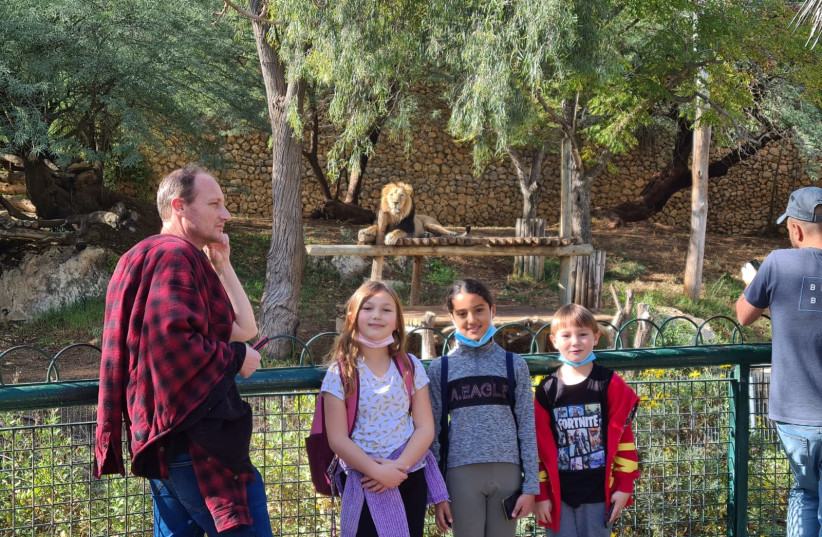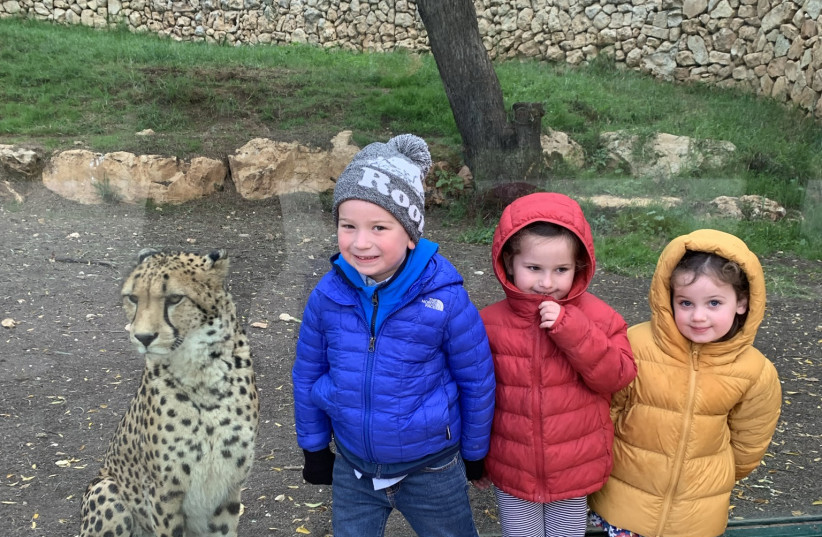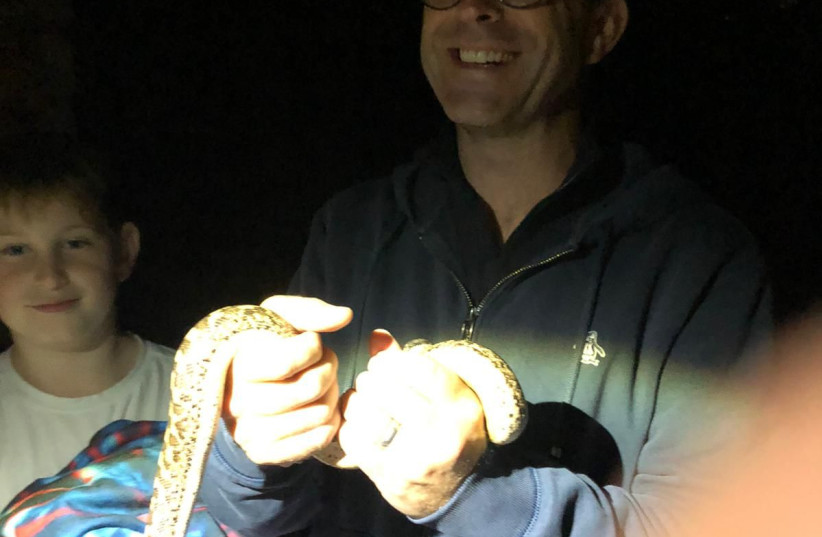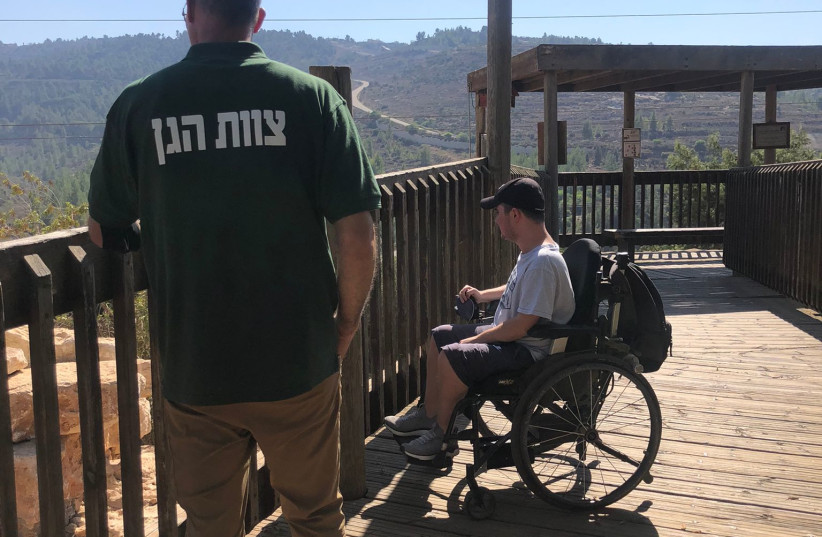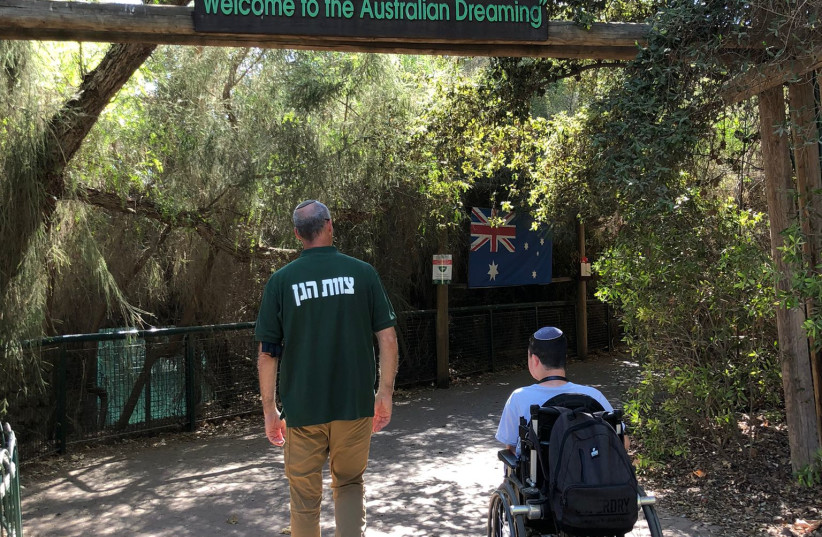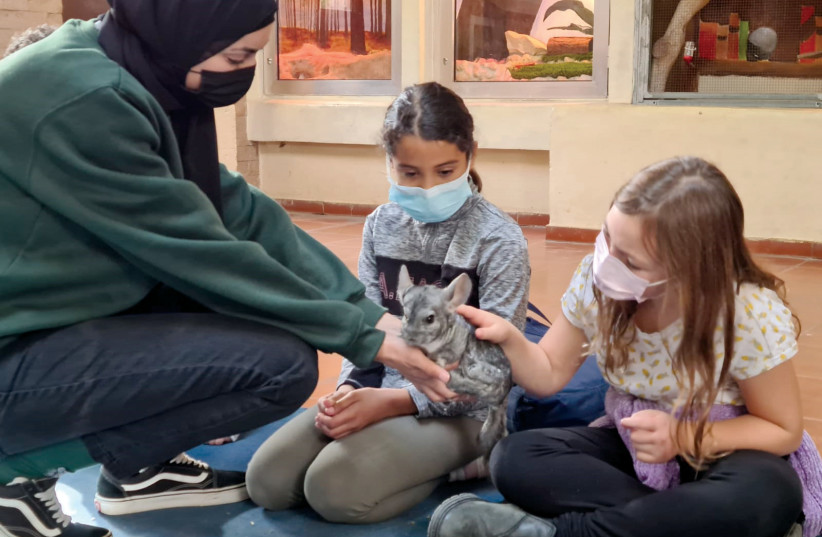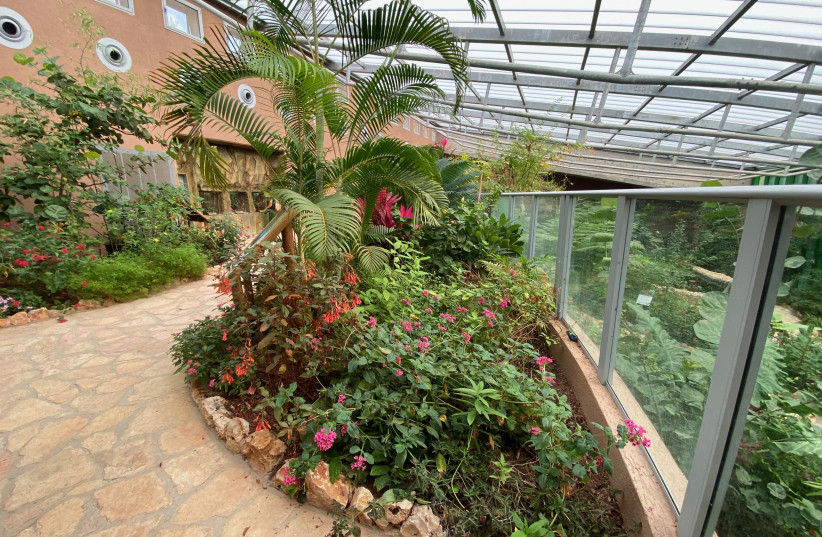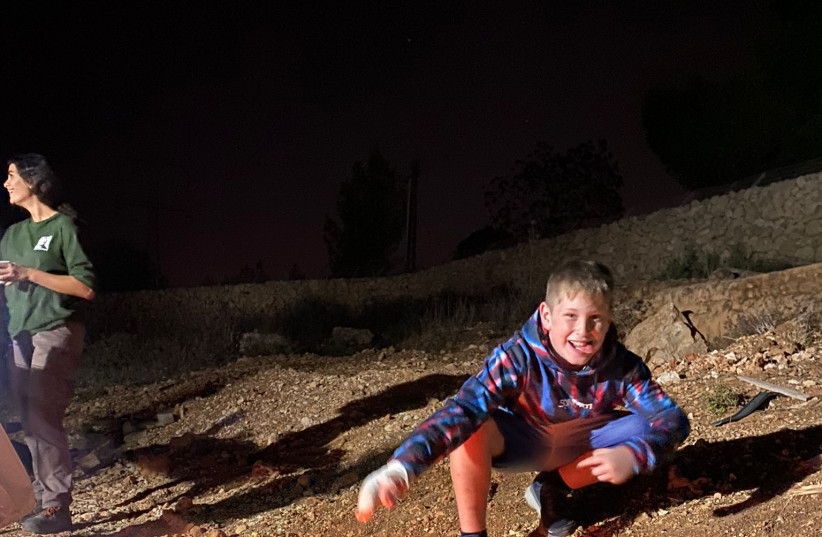Here are Jerusalem's biblical zoo upcoming plans

Corona times have proven challenging for most of Jerusalem’s attractions, but for the zoo's team, it has provided them with amazing opportunities for growth and renewal.
When I was invited to take a tour of the Tisch Family Biblical Zoo in Jerusalem, led by the new educational director, Noam Mozes, and zoo marketing manager Maya German, I expected to see the zoo that I had fallen in love with when I dated my husband, spent afternoons strolling with my kids, and visited with family and friends.
What I did not expect was how inspired I would feel as I heard about Mozes and German’s vision for making the Tisch Family Biblical Zoo more than just a popular tourist attraction, but transforming it into an incredible educational resource and a center of innovation and learning in Jerusalem.
The zoo’s mission remains to bring the public closer to nature, to teach the importance of conservation, and to protect endangered species and wildlife.
Mozes started our meeting by quoting zoo CEO Ziv Ayalon, who sees it as a “small but important part of a much bigger picture: a large, global picture with breeding projects, international conservation efforts, education and a vision for the future.”
The challenge Mozes and German face is how to keep true to its mission and relevant to today’s children and teens.
Over the past year, Mozes and his team have introduced a new range of experiential educational programming, tours and activities at the zoo, designed to build an ongoing relationship between the animals and the public.
“For me, a visit to the zoo is a wonderful learning opportunity,” said Mozes. “My goal is for people from all walks of life to leave here feeling like they know much more about the inter-connection between people, animals, plants and the environment then before they arrived.”
Corona times have proven challenging for most of Jerusalem’s attractions, but for Mozes and his team, it has provided them with amazing opportunities for growth and renewal. This is just a short description of some of the many new programs happening at the zoo in addition to the popular chugim and summer camp programs.
Field Schooling
This year Mozes expanded the Tisch Family Biblical Zoo outdoor learning program to six more schools, sponsored by the Jerusalem Foundation and representing all sectors of Jerusalem’s diverse population. It includes children with special needs, and youth at risk who are accompanied by a guide and their school teacher.
Students visit the zoo once a week for tailored educational programming, using the animals and the environment as a springboard for sharing ideas and learning.
“The uniqueness of the zoo’s setting makes this the perfect backdrop for lessons in reading, writing, biology, environmental studies, behavioral studies, social studies and so much more,” said Mozes. “Kids have been particularly affected by the pandemic. The outdoor learning sessions have been a great way to combat the negative effects. Parental and educator feedback has been great. They are telling us that the kids’ concentration, communication and relationship skills have all improved dramatically, and they’ve learned core subjects at the same time.”
Zoo in a Box
During corona, when school field trips were canceled, the team created special educational boxes filled with materials and resources to teach gan-age children about animals. Kids learned about proportion by comparing their footprints to those of elephants; created their own animal eggs and watched them hatch; and experienced the animal habitat by building a bird’s nest and painting birds’ eggs. These boxes are still being widely distributed to preschools throughout Jerusalem, giving kids their first hands-on understanding of the basics of the animal world.
Experiencing Youth Movements: Tenuat Noah
Did you know the zoo has its own youth movement called Tenuat Noah for 14- to 16-year-olds? They meet once a week for animal studies, go behind the scenes with the zookeepers to feed the animals, help with their training sessions, and find out how to take care of sick animals. But equally important, they learn how to work as part of a team, connect with people and the animals they are looking after, and experience the feeling of success. Over the next few months, the Israeli Scout Movement (Tzofim) will launch a program that will run alongside Tenuat Noah.
A Zoological Bagrut?
The zoo also offers a five-level matriculation in biology for gifted high school students from around Jerusalem and from all sectors of society. Students on the program research issues connected to biology, zoology, veterinary and nature conservation at the various zoo exhibits. The course is led by senior staff, with a focus on improving the well-being of the animals at the zoo. There are a series of behind-the-scenes tours that allow students to get to know the animals, the departments, and the keepers, and a series of classes on unique research and writing skills in preparation for the final project. Since its first year, over 80 students have participated in the program, many of whom graduate and become leaders for Tenuat Noah.
Mozes is particularly proud of the effect the students’ research projects have on the day-to-day life in the zoo. “The students’ final projects have led to breakthroughs in the treatment of animals in the zoo and aquarium,” he said. “For instance, as a result of their research findings, we have introduced regular training programs for animals with their keepers, which have improved communication, trust and taught the animals learned behaviors. These learned behaviors allow us to treat sick animals without the need to administer an anesthetic, which makes treatment a more pleasant and safer procedure all around.”
Innovative Tourism – Experiential Exhibitions and Tours
The Tisch Family Biblical Zoo and the Gottesman Aquarium have recently added a new biodiversity exhibit and butterfly house, where the butterflies fly freely and may even land on some visitors.
“The experience is magical, but it also teaches us about the important contribution that small animals like bees, ladybugs and butterflies make to nature and the inter-relationship between all animals in the eco-system,” explains German.
The exhibit, which is named in memory of Hilary Tisch and donated by the Tisch Family, is located near the Gottesman Aquarium and can be visited with an aquarium ticket (Green Pass, tav yarok required).
If you’ve always dreamed about sleeping over among the animals, now is your chance! There is a fantastic new tour called A Night at the Zoo, where you get to see the late-night feeding and bedtime routines of the animals, then spend the night in a tent on the grass next to the flamingos. The zoo staff will wake you in the morning and bring you breakfast, after which you join them for their early morning rounds. During this incredible tour, which is perfect for families, you will learn about the animals’ daily routines, training sessions, likes and dislikes, and some really fun facts about some amazing creatures.
And there’s some great news for visitors with limited mobility too. The zoo has just launched a new hop-on, hop-off guided train tour, which stops at every station for a visit to the different animal enclosures and exhibits, making a visit so much more manageable and enjoyable for all.
There’s a reason why the Tisch Family Biblical Zoo is one of Jerusalem’s top tourist attractions, and now with the new educational opportunities, it is so much more than that. Whether you’re there for a couple of hours or a full day, I guarantee you’ll leave feeling relaxed, amazed, energized, inspired and wanting to plan your next visit! After all, there’s always more to see and more to learn.
The writer is the founder of Fun In Jerusalem (www.funinjerusalem.com) and Party in Jerusalem (www.partyinjerusalem.com). She lives in the city with her husband and three kids, and loves to inspire family fun.
joanna@funinjerusalem.com
Jerusalem Post Store
`; document.getElementById("linkPremium").innerHTML = cont; var divWithLink = document.getElementById("premium-link"); if (divWithLink !== null && divWithLink !== 'undefined') { divWithLink.style.border = "solid 1px #cb0f3e"; divWithLink.style.textAlign = "center"; divWithLink.style.marginBottom = "15px"; divWithLink.style.marginTop = "15px"; divWithLink.style.width = "100%"; divWithLink.style.backgroundColor = "#122952"; divWithLink.style.color = "#ffffff"; divWithLink.style.lineHeight = "1.5"; } } (function (v, i) { });

